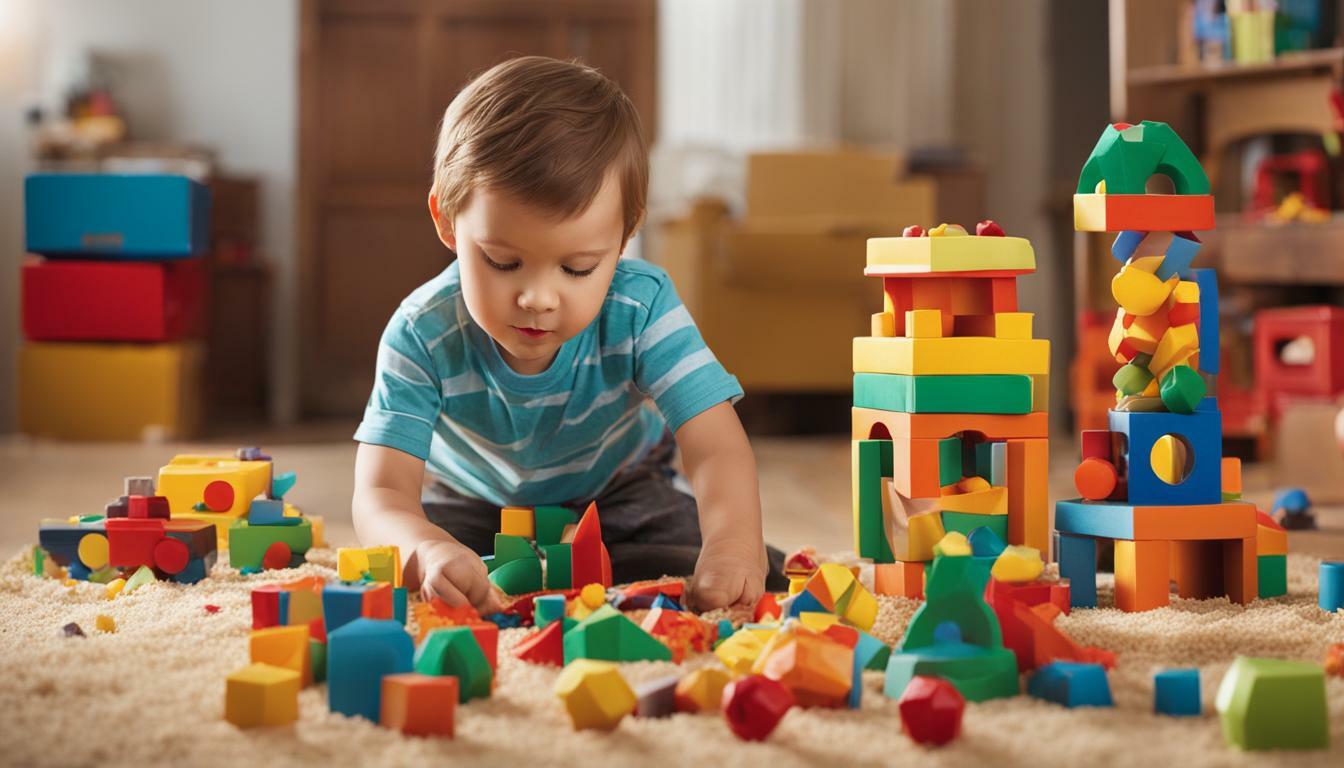Mental age is a concept in psychology that refers to an individual’s cognitive ability in relation to their chronological age. It provides insight into how one’s mind functions and develops over time, offering valuable information about cognitive performance and potential.
Key Takeaways:
- Mental age is a measure of cognitive ability.
- It is calculated by comparing an individual’s performance to that of others of the same chronological age.
- Mental age tests, such as intelligence tests, are used to assess cognitive function.
- Understanding mental age is important for assessing cognitive development and identifying potential challenges or opportunities for improvement.
- Factors such as cognitive decline, head trauma, and certain conditions can impact an individual’s mental age.
Exploring the Definition of Mental Age
Just like biological age reflects the physical condition of our bodies, mental age represents the level of cognitive performance and abilities. It is a measurement of a person’s mental capabilities in comparison to the average cognitive development of individuals of the same chronological age. In other words, mental age indicates how well an individual’s mind functions relative to others of their age group.
Mental age is typically determined through standardized intelligence tests, which assess an individual’s cognitive abilities across various domains. These tests measure skills such as problem-solving, memory, language proficiency, and logical reasoning. By evaluating performance on these tests, psychologists can derive a mental age that corresponds to the level of cognitive functioning exhibited by an individual.
The concept of mental age has been subject to debate. Some proponents argue that intellectual development follows a fairly consistent trajectory across individuals, with mental age serving as a meaningful representation of cognitive abilities. On the other hand, critics suggest that intellectual development is complex and multifaceted, and that different individuals may excel in specific areas while lagging behind in others.
Calculating Mental Age
To calculate mental age, psychologists use a formula that involves dividing an individual’s intelligence quotient (IQ) by their chronological age and multiplying it by 100. The resulting value represents an individual’s mental age.
| Formula | Explanation |
|---|---|
| IQ = (MA/CA) * 100 | IQ: Intelligence quotient |
| MA: Mental age | CA: Chronological age |
For example, if an individual has a chronological age of 40 and an IQ score of 120, their mental age would be calculated as follows:
- Divide the IQ score by the chronological age: 120 / 40 = 3
- Multiply the result by 100: 3 * 100 = 300
Therefore, in this case, the individual would have a mental age of 300, indicating advanced cognitive abilities relative to their chronological age.
It is important to note that mental age is just one aspect of understanding a person’s cognitive abilities, and it should not be considered the sole determinant of intelligence or potential.
The Role of Mental Age Tests
Mental age tests, such as the Stanford-Binet Intelligence Scales, play a crucial role in assessing an individual’s cognitive abilities and determining their mental age. These standardized intelligence tests have been widely used in psychology to measure intelligence and cognitive development.
The Stanford-Binet Intelligence Scales, developed by Alfred Binet in 1905, were one of the earliest and most influential tests used to calculate mental age. The test consists of a series of tasks and questions that assess various cognitive abilities, including verbal reasoning, problem-solving, and memory. By comparing an individual’s performance on these tasks to the average performance of individuals in different age groups, their mental age can be determined.
Standardized intelligence tests like the Stanford-Binet Intelligence Scales provide a standardized measure of cognitive abilities, allowing for a more objective assessment of mental age. These tests have been designed and normed on large samples of individuals from various age groups, ensuring that the results are reliable and valid.
Using mental age tests, psychologists can gain valuable insights into an individual’s cognitive strengths and weaknesses. These tests can help identify intellectual giftedness or cognitive delays, which can be crucial in developing appropriate interventions and educational strategies. Mental age tests have also been used in research to study the relationship between cognitive abilities and various factors such as socioeconomic status, educational attainment, and neurological conditions.
Benefits of Mental Age Tests
There are several benefits to using mental age tests, such as the Stanford-Binet Intelligence Scales:
- Objective Assessment: Standardized intelligence tests provide an objective measure of an individual’s cognitive abilities, eliminating the biases and subjectivity that can be present in other assessment methods.
- Early Identification: Mental age tests can help identify cognitive delays or giftedness in children at an early age, allowing for early intervention and support.
- Individualized Education: By understanding an individual’s mental age, educators can tailor instruction and curriculum to meet their specific cognitive needs and abilities.
- Research Purposes: Mental age tests are invaluable for researchers studying cognitive development, intelligence, and related factors.
In conclusion, mental age tests, such as the Stanford-Binet Intelligence Scales, are essential tools in assessing an individual’s cognitive abilities and determining their mental age. These standardized tests provide objective measures of intelligence and cognitive development, allowing for early identification of cognitive delays or giftedness and informing tailored interventions and educational strategies.
| Benefits of Mental Age Tests |
|---|
| Objective Assessment |
| Early Identification |
| Individualized Education |
| Research Purposes |
Theories Related to Mental Age
The concept of mental age has sparked theories and discussions about intellectual development, with some emphasizing similarities among individuals and others highlighting individual differences. These theories aim to explain how mental age relates to cognitive abilities and how it varies among different people.
One theory proposes that intellectual development follows a linear path, where individuals progress through stages of cognitive abilities in a sequential manner. According to this perspective, mental age serves as a measure of a person’s relative position on this developmental trajectory. It suggests that individuals with the same mental age should exhibit similar cognitive abilities, regardless of their chronological age. This theory assumes that cognitive development is largely universal and that mental age can be used to compare individuals’ intellectual abilities.
On the other hand, some theories argue for the existence of individual differences in intellectual development. These theories suggest that cognitive abilities can vary widely among individuals of the same age, challenging the notion of a linear progression. For example, a person may excel in certain cognitive abilities while lagging behind in others. This perspective highlights the importance of considering the unique strengths and weaknesses of individuals when assessing their mental age.
Individual Differences and Intellectual Development
A prominent theory related to intellectual development and mental age is the theory of multiple intelligences proposed by Howard Gardner. Gardner proposed that intelligence is not a singular, fixed trait, but rather a combination of different types of intelligences, including linguistic, logical-mathematical, spatial, musical, bodily-kinesthetic, interpersonal, intrapersonal, and naturalistic. This theory recognizes that individuals can excel in different areas of intelligence, leading to variations in mental age across these different domains.
Another theory related to mental age and individual differences is the theory of fluid and crystallized intelligence proposed by Raymond Cattell. According to this theory, fluid intelligence represents a person’s ability to solve new problems and think flexibly, while crystallized intelligence represents acquired knowledge and skills. Mental age, in this context, can be influenced by the balance between fluid and crystallized intelligence, as well as the rate at which these abilities develop in an individual.
In summary, theories related to mental age provide insights into how cognitive abilities develop and vary among individuals. While some theories emphasize similarities in intellectual development, others highlight the importance of individual differences. Understanding these theories can help us better assess and interpret mental age in relation to cognitive abilities.
Factors Affecting Mental Age
Various factors, such as cognitive decline and certain conditions like head trauma and dementia, can affect an individual’s mental age and cognitive abilities. These factors can impact the overall functioning of the mind, leading to changes in cognitive performance and intellectual development.
Cognitive decline is a natural part of the aging process, with peak cognitive functioning typically occurring around the age of 25 and gradually decreasing over time. As individuals age, they may experience a decline in memory, attention, processing speed, and problem-solving abilities. This decline in cognitive function can contribute to a decrease in mental age, as individuals may not perform at the same cognitive level as their chronological age peers.
Head trauma, such as concussions or severe brain injuries, can have a significant impact on mental age. Traumatic brain injuries can result in cognitive impairments, including memory loss, difficulty concentrating, and decreased problem-solving abilities. These cognitive deficits can contribute to a lower mental age, as individuals may struggle to perform cognitive tasks at the same level as their chronological age counterparts.
Dementia is a progressive condition that affects cognitive function and can significantly impact mental age. Individuals with dementia may experience a decline in memory, language skills, and problem-solving abilities. This decline in cognitive function can result in a lower mental age, as individuals may not be able to perform cognitively demanding tasks at the same level as their chronological age peers.
The Importance of Mental Exercises
In order to maintain cognitive performance and potentially slow down cognitive decline, engaging in mental exercises is crucial. Mental exercises, such as puzzles, reading, and learning new skills, can help stimulate the brain and keep cognitive abilities sharp. By challenging the mind and continuously learning, individuals can potentially improve their mental age and overall cognitive functioning.
| Factors Affecting Mental Age | Impact on Mental Age |
|---|---|
| Cognitive Decline | Can lead to a decrease in mental age as cognitive abilities decline with age. |
| Head Trauma | Can result in cognitive impairments and a lower mental age. |
| Dementia | Progressive condition that can significantly impact mental age due to cognitive decline. |
Conclusion
Understanding mental age and its relationship to cognition is crucial for gaining insights into our own cognitive abilities and potential for growth. Mental age refers to the level of cognitive performance relative to others of the same chronological age. By measuring mental age through standardized intelligence tests, such as the Stanford-Binet Intelligence Scales, we can assess cognitive development and compare it to typical levels for a specific age group.
While the concept of mental age has its critics, it provides a valuable framework for understanding intellectual development. It allows us to identify individual differences and variations in cognitive abilities among people of the same age. Additionally, mental age tests play a significant role in evaluating cognitive functioning and identifying areas for improvement.
Factors such as cognitive decline, head trauma, and conditions like dementia can impact an individual’s mental age. However, engaging in mental exercises and maintaining good cognitive health practices, such as reading and challenging the mind, can help sustain cognitive performance and slow down age-related decline.
In conclusion, understanding our mental age provides valuable insights into our cognitive abilities. It helps us assess our strengths and weaknesses, identify areas for improvement, and develop strategies for maintaining optimal cognitive functioning. By utilizing intelligence tests and exploring theories related to mental age, we can gain a better understanding of the complexities of human cognition.
FAQ
Q: What is mental age?
A: Mental age refers to the age level of an individual’s mental ability, based on the age in which it takes an average individual to reach that same level of mental attainment.
Q: How is mental age measured?
A: Mental age is typically measured through standardized intelligence tests, such as the Stanford-Binet Intelligence Scales. These tests assess an individual’s cognitive abilities and determine their mental age based on their performance.
Q: What factors can affect mental age?
A: Mental age can be impacted by various factors, including cognitive decline, head trauma, toxins, and conditions like dementia. However, engaging in mental exercises and maintaining good mental and physical health can help sustain cognitive performance.
Q: Are mental age tests accurate?
A: The accuracy of mental age tests can vary depending on the test used and the sample size. Official IQ tests with larger sample sizes tend to provide more precise results. It’s important to note that mental age tests should be interpreted in conjunction with other factors and not solely relied upon for a complete assessment of cognitive abilities.
Q: How does mental age relate to chronological age?
A: Chronological age refers to the number of years a person has lived, while mental age refers to their cognitive ability in relation to others of the same chronological age. Mental age is calculated by comparing an individual’s cognitive performance on standardized tests to the performance of individuals in the same age group.





